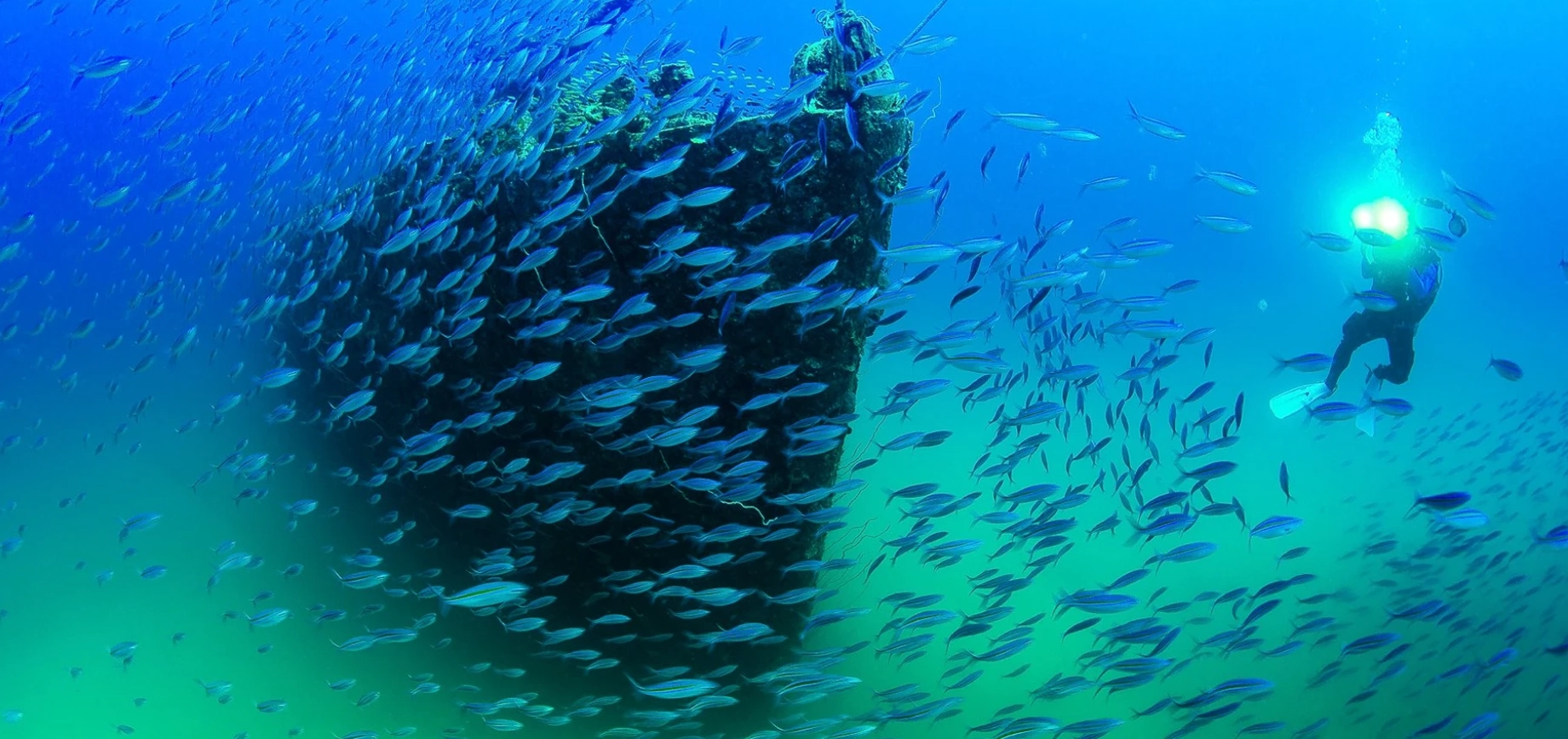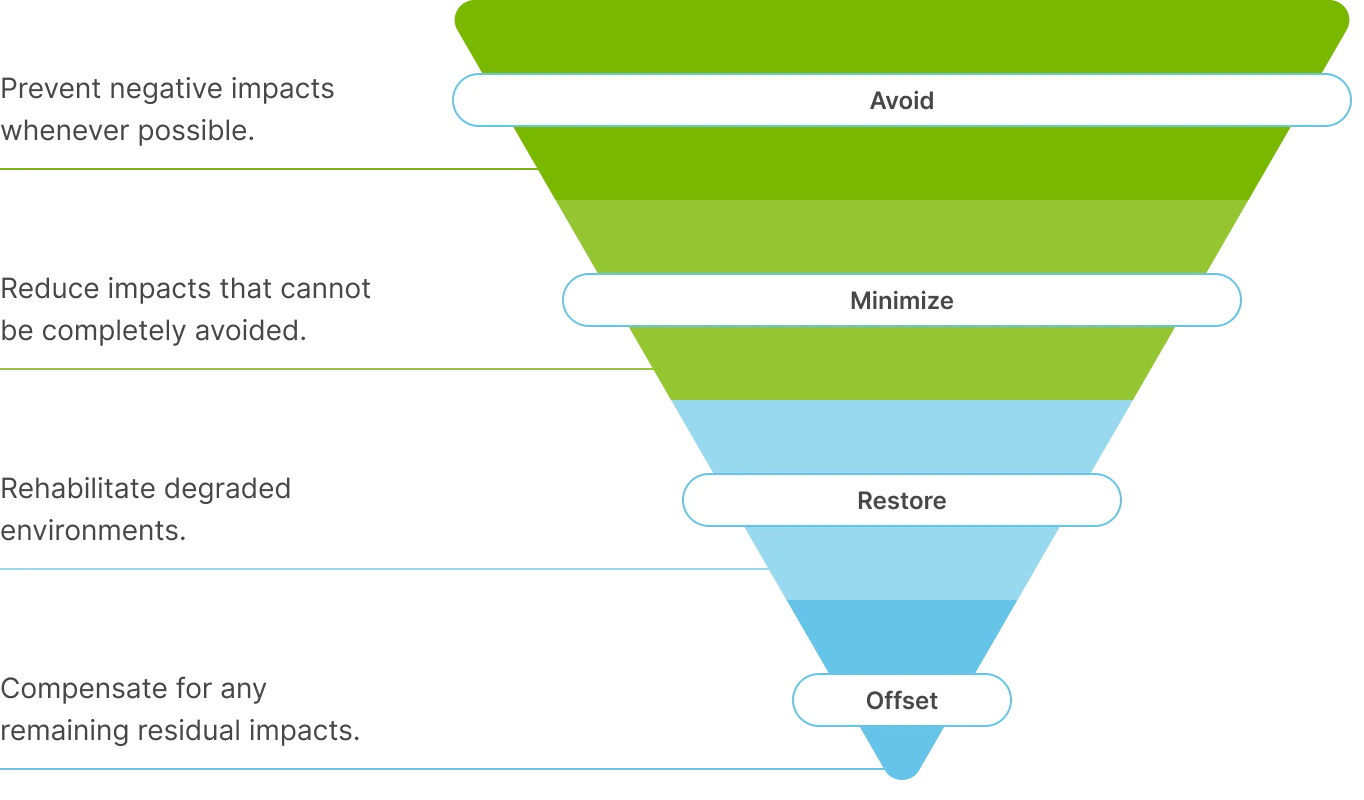

Biodiversity and Ecosystem Services Management
Importance and Mission
PTTEP recognize the critical importance of biodiversity and ecosystem services (BES) as the global focus. Our mission is to align with the objectives of the Global Biodiversity Framework, ensuring that our operations contribute global efforts to conserve, protect, and restore Biodiversity and Ecosystem Services (BES). PTTEP has committed to operating with minimal environmental impacts and integrated BES considerations into the business decision-making process, by means of the promotion of the net positive impact on biodiversity and ecosystem services at all operational areas.
Goals
- Avoid operating in World Heritage sites as defined by UNESCO.
- Achieve No-Net Loss of Biodiversity and Ecosystem Services in protected areas as defined by the International Union for Conservation of Nature (IUCN) Category I-IV protected areas by 2044.
- Achieve Net Positive Impact of Ocean Biodiversity and Ecosystem Services (Ocean BES) value in domestic offshore operations by 2025 and all offshore operations by 2030, compared to the 2019 base year.
- No Gross Deforestation* for E&P from 2021 onwards.
*The Food and Agriculture Organization (FAO) defines a forest as natural forests and forest plantations that have tree canopy covers more than 10 percent and areas of more than 0.5 hectare. The trees should be a minimum height of 5 meters. Forests are determined both by the presence of trees and the absence of other predominant land uses.

Management Approach
To ensure the effective achievement on the targets, PTTEP developed the Biodiversity and Ecosystem Services (BES) Management Guideline in line with IPIECA's "A Guide to Developing Biodiversity Action Plans for the Oil and Gas Sector" and International Finance Corporation (IFC)'s Performance Standard 6: Biodiversity Conservation and Sustainable Management of Living Natural Resources. The management guideline has been implemented at all PTTEP operational sites since 2014.
Biodiversity and Ecosystem Services Management Framework
PTTEP preliminarily manages BES risks and potential impacts through the Environmental Impact Assessment study and further applying Mitigation Hierarchy (Avoid, Minimize, Restore, Offset) to all E&P projects.

The process follows a structured approach that includes the following steps:

The BOMP is implemented for projects with a high level of biodiversity risks. The action plan is designed to prevent the loss of endangered species as well as protecting and restoring ecosystem services that might be impacted by the company’s operations.
The BES risk has been conducted since 2017 and reviewed annually. In 2024, only 2 operating sites are identified as high BES risks. Moreover, PTTEP has completed the BOMP for all operational assets with high risks.
In addition, PTTEP conducts dependency and impacted-related risks assessments for the operations located in close proximity to critical biodiversity using WWF’s Water and Biodiversity Risk Filter.
The Company’s BES risk assessment and its management in accordance with the mitigation hierarchy is summarized in our TNFD Report, consolidated in compliance with the Taskforce on Nature-related Financial Disclosures recommendations.
Furthermore, PTTEP extends the commitment to BES management across our supply chain. All tier 1 and non-tier 1 suppliers, as well as business partners, are required to align with PTTEP's BES targets for all operations within PTTEP's boundary to minimizing environmental impacts.
Collaboration and Networks Drive Biodiversity and Ecosystem Services Enhancement
PTTEP has become a member of business associations and networks both domestically and internationally to promote sustainability efforts including setting frameworks for environmental and sustainable practices. More information regarding Sustainability Collaboration and Networking can be found in Sustainability Framework and Long-term Target. In addition, we actively collaborates with external organizations in driving policies related to Biodiversity and Ecosystem Services such as;
- IPIECA-IOGP Biodiversity and Ecosystem Services Working Group (BESWG) and UN Environment Programme World Conservation Monitoring Centre (UNEP-WCMC) since 2016. The collaborations are in terms of e.g. sharing best practices, providing input on relevant legislation and regulations, supporting initiatives that drive positive change, capacity building/training and stakeholder engagement to promote biodiversity conservation and ecosystem services.
- Department of Marine and Coastal Resources, under the Memorandum of Understanding (MoU) of Ocean for Life, aims to conserve, restore and manage marine resources and biodiversity for ocean sustainability, as well as to promote public participation to enhance the quality of life and generate income for local communities in 17 provinces around the Gulf of Thailand where PTTEP operates. This cooperation covers a 10-year period, from 2020 to 2030, and extends until 2039 for mangrove forest conservation and restoration for carbon credits.
- Kasetsart University, under the Memorandum of Understanding (MoU), aims to promote ocean sustainability through various initiatives to tackle national and global issues with focus on ocean health and biodiversity monitoring. This cooperation covers an 8-year period, from 2021 to 2028,
- Department of Fisheries, Kasetsart University, Prince of Songkhla University, and Southeast Asian Fisheries Development Center, under the Memorandum of Agreement (MOA) for 3-year cooperation (2022-2025) to study and develop a guideline on the rigs-to-reef for sustainable fisheries Project, as well as promote and enhance fisheries resource management.
- Petroleum and Energy Institute of Thailand (PEIT) (formerly known as Petroleum Institute of Thailand, PTIT), National Research Council of Thailand (NRCT) and Office of National Security Council (NSC) signed a Memorandum of Understanding (MOU) for 5-year collaboration (2023-2028), with the cooperation from petroleum operators such as PTTEP and Chevron Thailand Exploration and Production Co., Ltd., for enhancing academic collaboration in the maritime interests to exchange knowledge and co-sponsor research assistance related to the ecosystem around decommissioning petroleum wellhead platforms in the Gulf of Thailand in order to conserve marine biodiversity.
- Office of Natural Resources and Environmental Policy and Planning under the Memorandum of Agreement (MOU) for 5-year collaboration (2023-2028) in promoting biodiversity conservation and ecosystem services, synchronizing between localized and national data platforms, and enhancing the social and environmental balance for biodiversity and support the country sustainability goal.